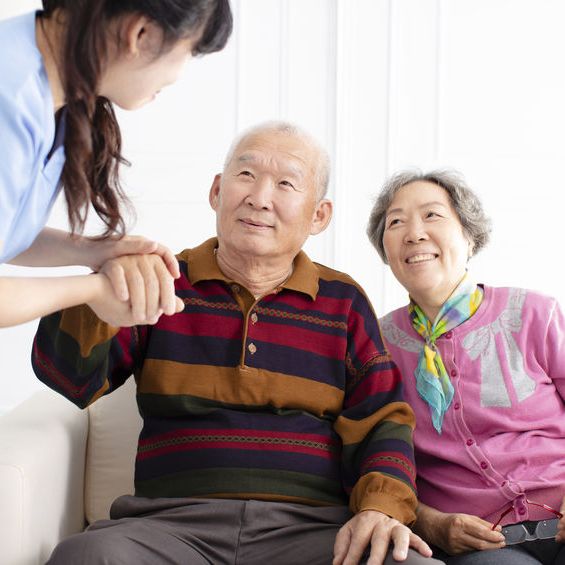iSavta | 30.04.2020

Essential Workers – While we talk about Frontliners battling in the front line against Coronavirus, we are referring to doctors, nurses, health aids and other health care workers in hospitals and other medical institutions. These people are heroes in their own right. To date, there are already a thousand health care workers who are positive in Covid-19 and a significant number of them have died.
But aside from these people in the front line, there are also people whose job is as essential as these health professionals and whose health is also at risk because of frequent exposure to people, sick or not.
We are talking about the supermarket cashiers, garbage collectors, janitors, maids, childcare workers, couriers, fast food workers, and personal/home care aids also known as Caregivers.
Caregivers who work with the immuno-compromised kids and the elderly are vulnerable to Covid-19. In a Nursing Home in Washington, more than 25 patients succumbed to the illness and died and more than 70 employees, including Caregivers have fallen sick.
Many of these Caregivers facing this risk are minimum wage earners with no paid sick leave and are forced to go to work even if they are sick to not lose their income.
It seems that for people who belong to the group of essential workers, leaving your job is not actually a choice. The best thing that you can do is to do everything you can to protect yourself from being infected.
For in-home care workers, there are some ways you can do to make sure you and your elderly patient are safe. This involves discipline, vigilance, common sense and careful following of the guidelines from the health agency.
1. Wash Hands with Soap and Water for at least 20 seconds as often as possible.
2. Avoid touching your eyes, nose, and mouth with unwashed or unsanitized hands. Use alcohol-based sanitizers with at least 60% alcohol.
3. Avoid crowded places, handshaking and kissing. Social distancing is important.
4. Avoid contact with people who are sick (coughing, sneezing, with fever)
5. Submit to self-quarantine and stay at home if you feel sick.
6. Cover mouth and nose when you are coughing or sneezing. Wear a mask if possible.
7. Practice good overall hygiene by washing yourself and changing your clothes regularly.
8. Avoid touching common and frequently “touched” surfaces in public areas like elevator buttons, door knobs, and handrails. If necessary, use a tissue to cover your hand or finger and sanitize your hand after.
9. Boost your immune system by having enough sleep, eating healthy and exercise.
10. Be informed by reliable sources and follow protocols and guidelines imposed by your community, state or country.
Because there is still no vaccine available for Covid-19, a Caregiver can never be too complacent and must take extra precaution in dealing with their elderly patient. A simple sneeze can entirely change your health condition as well as your patient’s. As one of the people who are at risk because of the nature of your job, it is essential to be well informed and smart to protect yourself from contracting the disease.


